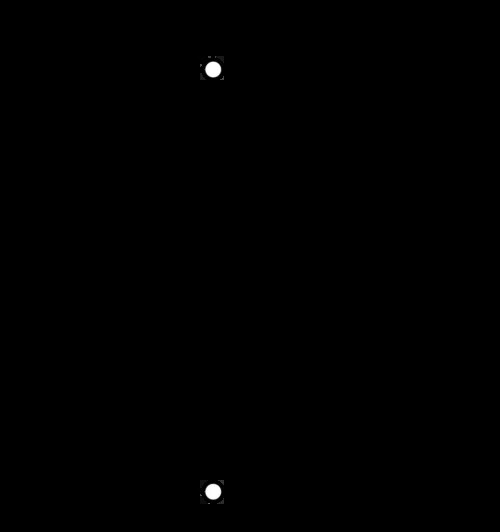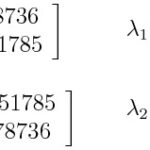Are you eager to discover How Can I Learn Quantum Computing, paving your way into the realm of quantum mechanics and computation? At LEARNS.EDU.VN, we present a thorough roadmap brimming with resources, tools, and guidance, streamlining your quantum computing learning journey. Whether you’re a novice or an expert, embrace our resources to unravel quantum computing complexities and master cutting-edge techniques.
Table of Contents
- Understanding the Intent Behind Learning Quantum Computing
- What is Quantum Computing?
- Why Learn Quantum Computing?
- Who Should Learn Quantum Computing?
- The Quantum Computing Learning Path: A Structured Approach
- Essential Mathematical Prerequisites for Quantum Computing
- Quantum Computing Resources for Beginners (No Maths)
- Quantum Computing Resources for Intermediate Learners (Some Maths)
- Advanced Quantum Computing Resources (Fluent Maths)
- Delving Deeper: Quantum Algorithms Resources
- Building a Quantum Computing Career
- Staying Updated with Quantum Computing Developments
- Quantum Computing Platforms and Tools
- Overcoming Challenges in Learning Quantum Computing
- The Future of Quantum Computing Education
- Success Stories: Inspiring Journeys in Quantum Computing
- Quantum Computing Ethics and Responsibility
- Quantum Computing Communities and Forums
- Quantum Computing for Different Age Groups
- Frequently Asked Questions (FAQs) About Learning Quantum Computing
1. Understanding the Intent Behind Learning Quantum Computing
Before diving into the specifics of quantum computing, consider what drives your interest. Are you fascinated by the potential of quantum algorithms to solve complex problems, or are you intrigued by the underlying physics that govern quantum phenomena? Perhaps you see quantum computing as a future career path, or maybe you’re just curious about the hype surrounding this emerging field. Understanding your intent will help you tailor your learning journey and stay motivated along the way. Whether it’s mastering quantum mechanics, exploring quantum algorithms, or career advancement, clarifying your goals will streamline your learning process.
2. What is Quantum Computing?
Quantum computing is a revolutionary field that leverages the principles of quantum mechanics to perform computations beyond the capabilities of classical computers. Unlike classical bits that store information as 0 or 1, quantum bits, or qubits, can exist in a superposition of both states simultaneously. This, along with other quantum phenomena like entanglement, enables quantum computers to tackle complex problems that are intractable for classical machines. According to a study by McKinsey, quantum computing could create value ranging from $450 billion to $850 billion by 2040. This potential spans across industries, making quantum computing a pivotal area for future technological advancements.
 A schematic representation of a qubit on the Bloch sphere, illustrating superposition.
A schematic representation of a qubit on the Bloch sphere, illustrating superposition.
3. Why Learn Quantum Computing?
Learning quantum computing opens doors to numerous opportunities and benefits:
- Solving Complex Problems: Quantum computers can potentially solve problems that are currently impossible for classical computers, such as drug discovery, materials science, and financial modeling.
- Career Opportunities: As quantum computing technology matures, there will be a growing demand for professionals with expertise in this field.
- Innovation: Quantum computing is driving innovation in various industries, and learning about it can help you stay at the forefront of technological advancements.
- Personal Enrichment: Understanding quantum computing can be intellectually stimulating and expand your knowledge of the universe.
4. Who Should Learn Quantum Computing?
Quantum computing is a multidisciplinary field that welcomes learners from diverse backgrounds:
- Students: High school and university students studying computer science, physics, mathematics, or engineering can benefit from learning quantum computing to prepare for future careers.
- Researchers: Scientists and researchers in various fields can use quantum computing to accelerate their research and make new discoveries.
- Professionals: Professionals in industries such as finance, healthcare, and cybersecurity can leverage quantum computing to solve complex problems and gain a competitive edge.
- Enthusiasts: Anyone with a passion for science and technology can learn quantum computing to satisfy their curiosity and explore the frontiers of knowledge.
5. The Quantum Computing Learning Path: A Structured Approach
To effectively learn quantum computing, a structured approach is essential. Here’s a recommended learning path:
- Foundational Knowledge: Start with the basics of linear algebra, complex numbers, and quantum mechanics.
- Quantum Computing Fundamentals: Learn about qubits, quantum gates, quantum circuits, and quantum algorithms.
- Quantum Programming: Gain hands-on experience by programming quantum computers using languages like Qiskit or Cirq.
- Advanced Topics: Explore advanced topics such as quantum error correction, quantum cryptography, and quantum machine learning.
- Applications: Investigate real-world applications of quantum computing in various industries.
6. Essential Mathematical Prerequisites for Quantum Computing
Mathematics is the bedrock of quantum computing. Here are the essential mathematical concepts you should be familiar with:
- Linear Algebra: Vectors, matrices, linear transformations, eigenvalues, and eigenvectors.
- Complex Numbers: Complex arithmetic, complex conjugates, and polar representation.
- Probability and Statistics: Probability distributions, random variables, and statistical inference.
- Calculus: Differentiation, integration, and differential equations.
7. Quantum Computing Resources for Beginners (No Maths)
If you’re new to quantum computing and prefer a less mathematical approach, here are some excellent resources:
| Resource Type | Description | Example |
|---|---|---|
| Short Videos | Concise and engaging videos that explain quantum computing concepts in simple terms. | Quantum Computing for Dummies by SciShow |
| Popular Science Books | Non-technical books that provide an overview of quantum computing and its potential applications. | “Quantum Computing for Everyone” by Chris Bernhardt |
| Interactive Games | Fun and interactive games that teach quantum computing concepts in a playful way. | Quantum Moves |
| Articles and Websites | Introductory articles and websites that explain quantum computing without delving into complex mathematics. | Quantum Computing Explained by IBM |
| Online Courses | Beginner-friendly online courses that cover quantum computing basics with minimal math. | edX’s “Quantum Computing Basics” |
8. Quantum Computing Resources for Intermediate Learners (Some Maths)
For those with some mathematical background, these resources offer a deeper dive into quantum computing:
| Resource Type | Description | Example |
|---|---|---|
| Textbooks | Textbooks that cover the mathematical foundations of quantum computing, such as linear algebra and quantum mechanics. | “Quantum Computation and Quantum Information” by Nielsen and Chuang |
| Online Courses | Online courses that delve into the mathematical details of quantum computing, such as quantum algorithms and quantum error correction. | Coursera’s “The Elements of Quantum Computing” |
| Programming Tutorials | Tutorials that teach you how to program quantum computers using languages like Qiskit or Cirq, with a focus on the underlying mathematical concepts. | Qiskit Textbook |
| Research Papers | Introductory research papers that explore specific quantum computing topics, such as quantum cryptography or quantum machine learning. | “Quantum Key Distribution” by Bennett and Brassard |
9. Advanced Quantum Computing Resources (Fluent Maths)
For advanced learners with a strong mathematical background, these resources offer in-depth knowledge of quantum computing:
| Resource Type | Description | Example |
|---|---|---|
| Graduate Texts | Advanced textbooks that cover the most intricate aspects of quantum computing, such as quantum complexity theory and quantum information theory. | “Quantum Information Theory” by Mark Wilde |
| Research Papers | Cutting-edge research papers that explore the latest developments in quantum computing, such as new quantum algorithms or quantum hardware architectures. | “Demonstration of Quantum Supremacy Using a Programmable Superconducting Processor” by Arute et al. |
| Conferences | Academic conferences and workshops where researchers present their latest findings in quantum computing. | Quantum Information Processing (QIP) Conference |
| Seminars | Seminars and colloquia at universities and research institutions where experts discuss advanced topics in quantum computing. | MIT Quantum Information Science and Engineering Center (QuISE) Seminars |
10. Delving Deeper: Quantum Algorithms Resources
Quantum algorithms are the heart of quantum computing, offering potential speedups for certain computational tasks. Here are some resources to help you delve deeper into this topic:
| Algorithm | Description | Resource |
|---|---|---|
| Shor’s Algorithm | An algorithm for factoring large numbers, which has implications for cryptography. | Shor’s Original Paper |
| Grover’s Algorithm | An algorithm for searching unsorted databases quadratically faster than classical algorithms. | Grover’s Original Paper |
| Quantum Simulation | Algorithms for simulating quantum systems, which can be used to study molecules, materials, and other complex systems. | “Quantum Simulation of Chemistry” by Aspuru-Guzik et al. |
| Quantum Machine Learning | Algorithms that combine quantum computing with machine learning techniques to solve problems in pattern recognition, data analysis, and optimization. | “Supervised Learning with Quantum Enhanced Feature Spaces” by Havlíček et al. |
11. Building a Quantum Computing Career
A career in quantum computing can be both rewarding and challenging. Here are some tips for building a successful career in this field:
- Develop a Strong Foundation: Master the essential mathematical and scientific concepts underlying quantum computing.
- Gain Hands-On Experience: Learn how to program quantum computers and experiment with quantum algorithms.
- Network with Experts: Attend conferences, workshops, and seminars to connect with researchers and professionals in the field.
- Contribute to Open-Source Projects: Contribute to open-source quantum computing projects to showcase your skills and collaborate with others.
- Pursue Advanced Education: Consider pursuing a graduate degree in quantum computing or a related field to deepen your knowledge and expertise.
12. Staying Updated with Quantum Computing Developments
Quantum computing is a rapidly evolving field, so it’s essential to stay updated with the latest developments. Here are some resources to help you stay informed:
| Resource Type | Description | Example |
|---|---|---|
| Quantum Computing News | Websites and newsletters that provide up-to-date news and analysis of quantum computing developments. | Quantum Computing Report |
| Research Papers | Academic journals and preprint servers that publish the latest research papers in quantum computing. | Physical Review A, arXiv |
| Conferences and Events | Conferences, workshops, and seminars that bring together researchers, professionals, and enthusiasts to discuss the latest advances in quantum computing. | Quantum.Tech, Inside Quantum Technology |
| Social Media | Social media platforms like Twitter and LinkedIn where quantum computing experts and organizations share news, insights, and resources. | Follow leading quantum computing researchers and organizations on Twitter and LinkedIn. |
13. Quantum Computing Platforms and Tools
Several quantum computing platforms and tools are available for learners to experiment with:
- IBM Quantum Experience: A cloud-based platform that allows you to run quantum algorithms on real quantum hardware.
- Microsoft Azure Quantum: A cloud-based platform that provides access to a variety of quantum computing hardware and software tools.
- Google Cirq: An open-source Python library for writing, simulating, and optimizing quantum circuits.
- Amazon Braket: A cloud-based platform that allows you to experiment with different quantum computing hardware providers.
14. Overcoming Challenges in Learning Quantum Computing
Learning quantum computing can be challenging, but here are some strategies to overcome common obstacles:
- Start with the Basics: Don’t try to learn everything at once. Start with the fundamental concepts and gradually build your knowledge.
- Practice Regularly: Practice programming quantum computers and solving quantum computing problems to reinforce your understanding.
- Seek Help When Needed: Don’t be afraid to ask for help from instructors, mentors, or online communities when you get stuck.
- Stay Persistent: Quantum computing is a complex field, so don’t get discouraged if you don’t understand everything right away. Keep learning and practicing, and you will eventually master the concepts.
15. The Future of Quantum Computing Education
Quantum computing education is evolving rapidly to meet the growing demand for skilled professionals. Here are some trends shaping the future of quantum computing education:
- Increased Accessibility: More universities and online platforms are offering quantum computing courses and programs, making it easier for people to learn about this field.
- Hands-On Learning: Educational resources are increasingly focused on hands-on learning, with opportunities to program quantum computers and experiment with quantum algorithms.
- Interdisciplinary Approach: Quantum computing education is becoming more interdisciplinary, integrating concepts from computer science, physics, mathematics, and engineering.
- Industry Collaboration: Universities and research institutions are collaborating with industry partners to develop curricula and training programs that meet the needs of the quantum computing workforce.
16. Success Stories: Inspiring Journeys in Quantum Computing
Hearing about the success stories of others can be a great source of inspiration. Here are a few examples of people who have made significant contributions to the field of quantum computing:
- Peter Shor: Developed Shor’s algorithm, which has revolutionized the field of cryptography.
- Lov Grover: Invented Grover’s algorithm, which provides a quadratic speedup for searching unsorted databases.
- Ilyas Khan: Founding member of Cambridge Quantum Computing (now Quantinuum), one of the leading quantum computing companies.
- Chad Rigetti: Founder of Rigetti Computing, a company that is building full-stack quantum computers.
17. Quantum Computing Ethics and Responsibility
As quantum computing technology advances, it’s essential to consider the ethical and societal implications. Here are some ethical considerations to keep in mind:
- Security Risks: Quantum computers could break current encryption algorithms, posing a threat to cybersecurity.
- Bias and Fairness: Quantum machine learning algorithms could perpetuate or amplify biases present in training data.
- Accessibility: Ensuring that quantum computing technology is accessible to everyone and not just a select few.
- Environmental Impact: Minimizing the energy consumption and environmental impact of quantum computers.
18. Quantum Computing Communities and Forums
Joining a quantum computing community can provide valuable support, networking opportunities, and learning resources. Here are some popular quantum computing communities and forums:
| Community | Description |
|---|---|
| Qiskit Slack | A Slack community for users of the Qiskit quantum computing framework. |
| Quantum Computing Stack Exchange | A question-and-answer website for quantum computing enthusiasts and experts. |
| Quantum Computing Subreddit | A Reddit community for discussing quantum computing news, research, and resources. |
| Meetup Groups | Local meetup groups that organize quantum computing events and workshops. |
19. Quantum Computing for Different Age Groups
Quantum computing can be introduced to learners of all ages, with age-appropriate resources and activities:
- Ages 10-14: Introduce basic concepts through interactive games and visual aids.
- Ages 15-18: Explore more advanced topics with introductory textbooks and online courses.
- Ages 18+: Dive into the mathematical foundations and programming aspects of quantum computing with advanced resources and platforms.
20. Frequently Asked Questions (FAQs) About Learning Quantum Computing
Here are some frequently asked questions about learning quantum computing:
- Is quantum computing hard to learn?
- Quantum computing can be challenging, but with the right resources and a structured approach, anyone can learn it. Start with the basics and gradually build your knowledge.
- Do I need a strong math background to learn quantum computing?
- A strong math background is helpful, but not always necessary. You can start with resources that require minimal math and gradually learn the mathematical concepts as you progress.
- What programming languages are used in quantum computing?
- Popular programming languages for quantum computing include Python (with libraries like Qiskit and Cirq) and Q#.
- Can I learn quantum computing online?
- Yes, there are many online courses, tutorials, and resources available for learning quantum computing.
- How long does it take to learn quantum computing?
- The time it takes to learn quantum computing depends on your background, learning style, and goals. It can take anywhere from a few months to several years to become proficient in this field.
- What are the career opportunities in quantum computing?
- Career opportunities in quantum computing include quantum algorithm developer, quantum software engineer, quantum hardware engineer, and quantum researcher.
- How can I stay updated with the latest developments in quantum computing?
- Follow quantum computing news websites, research journals, conferences, and social media accounts to stay informed.
- What are the ethical considerations of quantum computing?
- Ethical considerations include security risks, bias and fairness, accessibility, and environmental impact.
- Where can I find a quantum computing community?
- You can find quantum computing communities on Slack, Stack Exchange, Reddit, and local meetup groups.
- How can I introduce quantum computing to kids?
- Introduce basic concepts through interactive games, visual aids, and age-appropriate resources.
Learning quantum computing is a journey that requires dedication, persistence, and a passion for knowledge. With the right resources and a structured approach, anyone can embark on this exciting adventure and contribute to the future of technology.
Ready to dive deeper into the world of quantum computing? Explore LEARNS.EDU.VN for comprehensive courses, in-depth articles, and expert guidance. Unlock your potential and become a quantum computing pioneer today!
Contact us at:
Address: 123 Education Way, Learnville, CA 90210, United States
Whatsapp: +1 555-555-1212
Website: learns.edu.vn

